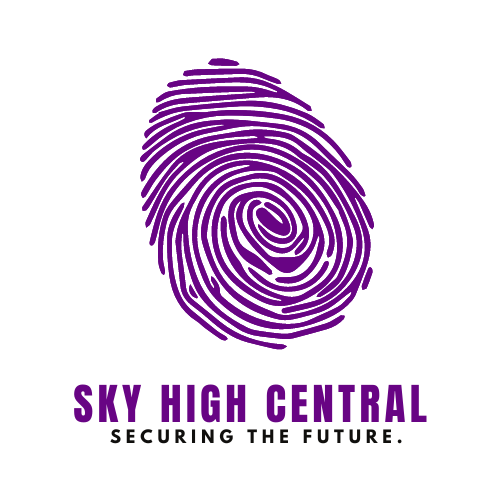Recruitment has changed dramatically over the past decade. Gone are the days when job boards and newspaper ads were the primary ways to find talent. Today, social media platforms have become one of the most effective tools for recruitment and hiring. They don’t just help employers reach more people—they also provide better targeting, stronger employer branding, and real-time engagement with candidates.
In this guide, I’ll share how businesses (including mine) have used social platforms to hire the right talent, plus which channels work best depending on your industry and hiring needs.
Why Use Social Media for Recruitment?
Social media allows companies to go beyond traditional job postings. Here are some key reasons it works:
- Wider reach: Millions of professionals actively use platforms like LinkedIn, Instagram, and even TikTok.
- Employer branding: Showcasing company culture helps attract the right candidates.
- Targeted recruitment: Advanced filters and ads let you reach specific skills, industries, or regions.
- Engagement: You can interact with potential hires directly through comments, shares, or messages.
From my own experience, sharing employee stories and behind-the-scenes posts on LinkedIn helped us attract candidates who aligned with our culture—before they even applied.
Best LMS Software for Corporate Training in 2025
Best Social Media Platforms for Recruitment and Hiring
1. LinkedIn – The Professional Powerhouse
LinkedIn remains the go-to platform for professional recruitment. With tools like LinkedIn Recruiter, InMail, and job postings, you can target candidates by skills, job titles, and experience.
From my side, LinkedIn has worked best for filling mid-to-senior roles, especially when I needed candidates with niche expertise. It’s also excellent for building long-term employer branding.
2. Facebook – Community-Driven Hiring
Facebook has massive reach, and its Facebook Jobs feature lets companies post vacancies directly. You can also join industry-specific groups where potential candidates actively engage.
I once hired a graphic designer through a local Facebook group—it was faster and more personal than traditional applications.
3. Instagram – Visual Employer Branding
Instagram is less about direct job postings and more about employer branding. Showcasing culture, team activities, and success stories builds trust.
We used Instagram Reels to highlight “day in the life” clips of our employees, which unexpectedly brought in high-quality applications.
4. Twitter (X) – Quick Networking
Twitter (now X) allows quick communication and industry networking. Many companies use hashtags like #hiring, #jobs, #careers to connect with talent.
For fast-moving industries like tech or media, Twitter helps spread openings quickly and build brand authority.
5. TikTok – Recruiting Gen Z
TikTok is growing in recruitment, especially for roles in creative industries, retail, and hospitality. Brands use short, engaging videos to attract younger audiences.
I tested this by creating a playful recruitment video for an internship. It reached more people than our traditional job ad, and we received applications within hours.
6. Niche Communities – Reddit, GitHub, Dribbble
For specialized roles, niche platforms often outperform mainstream networks. For instance:
- GitHub for developers
- Dribbble/Behance for designers
- Reddit for community-driven hiring
If you’re hiring for specialized skills, posting in these communities often brings more relevant candidates.
Best Recruitment Marketing Software for Social Media
Using the right tools makes social recruiting much easier. These platforms help schedule posts, track engagement, and manage recruitment campaigns across channels.
1. Hootsuite – Great for scheduling job posts, tracking performance, and managing multiple platforms in one place.
2. Sprout Social – Offers strong analytics and social listening, making it easier to see how candidates interact with your brand.
3. Buffer – Simple and affordable tool for small to mid-sized teams to plan and publish recruitment campaigns.
4. Beamery – A recruitment CRM that integrates with social media to nurture talent pipelines.
5. SmartDreamers – Focused on recruitment marketing automation, especially for large enterprises looking to streamline employer branding.
These tools save time and ensure your recruitment posts reach the right people at the right time.
How to Use Social Media Effectively for Hiring
- Create engaging job posts – Use clear language, visuals, and employee testimonials.
- Leverage ads – Paid campaigns help target passive candidates.
- Build employer brand – Share culture, values, and employee achievements.
- Engage actively – Respond to comments and messages; don’t just post and wait.
- Track results – Use analytics to measure which platforms bring the best candidates.
Pros and Cons of Social Media Recruitment
Pros:
- Larger and more diverse reach
- Stronger employer branding
- Direct candidate engagement
Cons:
- Time-consuming without a strategy
- Risk of attracting unqualified applicants
- Requires consistent content to maintain visibility
Final Thoughts
Social media platforms are no longer optional in recruitment—they’re essential. Whether you’re a startup or a large company, leveraging LinkedIn, Facebook, Instagram, TikTok, and niche platforms can significantly improve your hiring outcomes.
From my own hiring journey, I’ve found that mixing professional networks (LinkedIn) with branding platforms (Instagram, TikTok) gives the best balance of reach and cultural fit.
Also Read: How Social Media Enhances Employee Engagement and HR Practices?
FAQs
Which social media platform is best for recruitment?
LinkedIn is the most effective for professional hiring, but platforms like Instagram and TikTok are better for employer branding and reaching younger talent.
Can small businesses recruit on social media?
Yes, social media levels the playing field. Small businesses can attract top talent with authentic culture-focused content.
How do I attract passive candidates?
Use targeted ads, post engaging company content, and build long-term employer branding.
Is social media better than job boards?
Not always—it depends on the role. For niche or creative roles, social media often brings better results, while job boards are useful for volume hiring.
